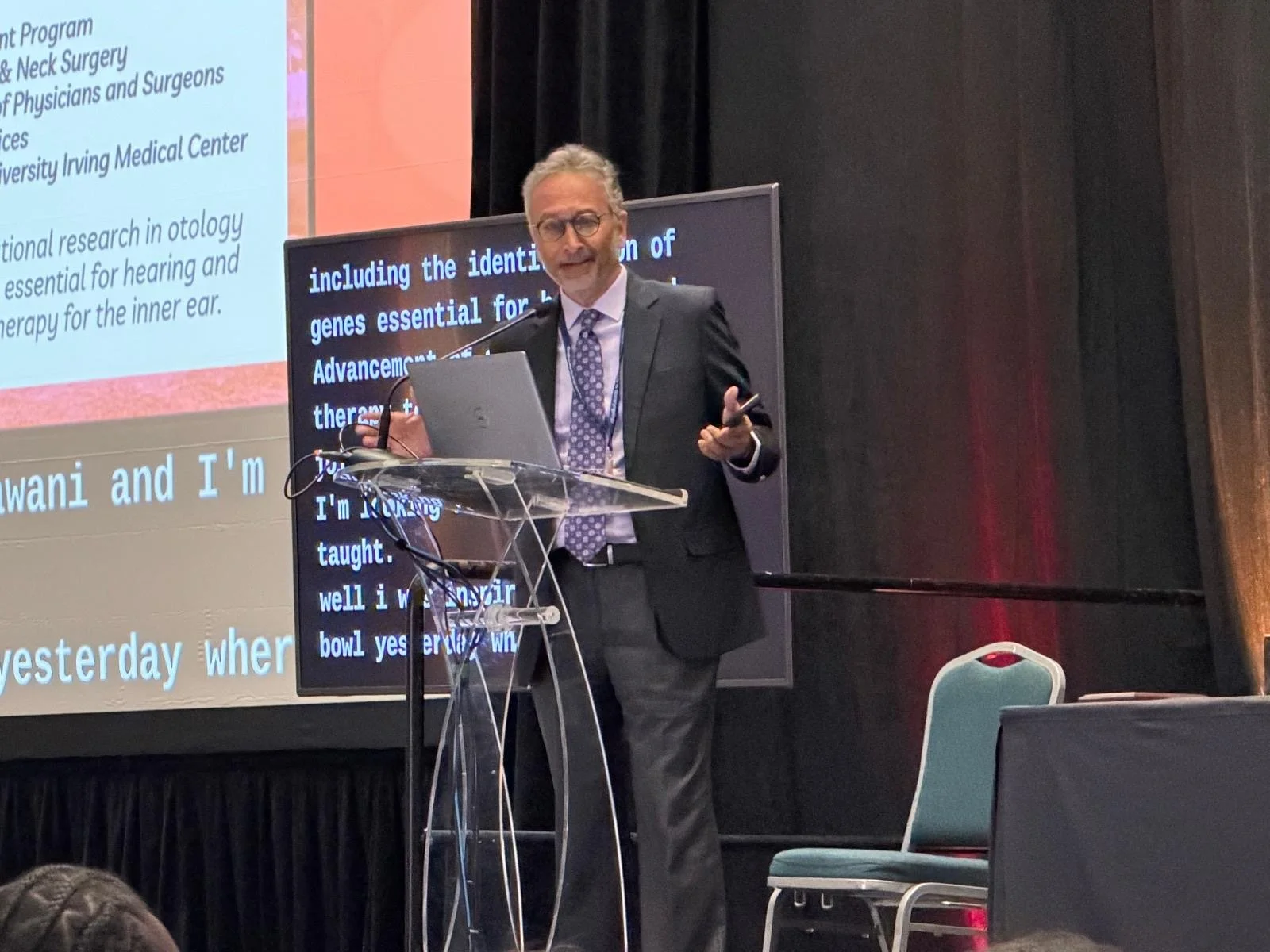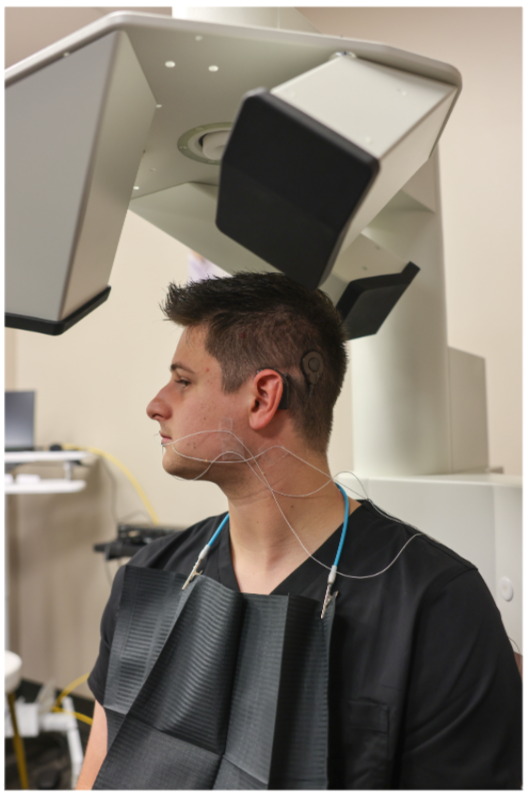By Annie Willerton
Prior to getting hearing aids, as an early riser I was proud of the silent stealth with which I tiptoed around the house, not disturbing anyone’s sleep. I enjoyed my hushed, soft-toed footsteps, and saw it as a skill to be grateful for.
My partner frequently told me I needed a hearing test, and friends even mentioned it. My strategies of walking next to people on my “good side’” were not always being successful in keeping a coherent conversation going.
Most difficult for me was at work as a therapist. Clients would whisper an important, deep meaningful revelation and I would miss it, and obviously it would have been disrespectful to ask them to repeat it. Running group sessions I found myself stretching my neck farther and farther out across the circle in effort to get my “good” ear closer to what was being said.
Having grown up with a mother who kept her hearing aids in the drawer, and surrounded by people who moaned about their hearing aids, saying how they amplified all sounds and made it no easier to hear what was being said, I wasn’t in a rush to waste U.K. National Health Service money to be tested and fitted with something I would give up on.
Vicious criticism of aids often came from hearing aid virgins who were tinnitus sufferers, having heard from other tinnitus sufferers that hearing aids didn’t cure their tinnitus. Since I have tinnitus in my “bad” ear, these comments added to my reluctance to get hearing aids.
I remembered hilarious conversations happening in the care home lounge when I visited my dad in his last year of life. We would sit playing cribbage and it was impossible not to eavesdrop on or smile at a group of women who would be having disjointed, incoherent conversations about the lack of effectiveness of their hearing aids. The swapping of aids between them was common in their attempts to prove their aids were faulty.
I eventually asked for my ears to be checked out and waited patiently for a hearing test. There seemed no urgency, no need to join the disgruntled moaning about the state of the U.K. health system, and—even though I knew I missed some things being said—I was still blissfully unaware about having a hearing problem.
We automatically adjust to our bodily decrepitudes and put coping strategies in place. As I mentioned to favor my “good” ear I positioned myself for maximum volume and made face to face contact to glean more from facial expression to back up any subtleties of spoken words I may have missed.
Returning home after the initial test my partner asked what the outcome was.
“Well, as expected I suppose, I need hearing aids.”
“Hearing aids! They are for old people,” he answered, surprised.
“What did you expect would happen?”
“I thought they would just syringe them,” he said.
I laughed. I’d been assuring him I had no earwax problem whenever he suggested I had. And I am no spring chicken. Of course having hearing aids is not something only the elderly have and there should certainly be no stigma about having them.
I was surprised I needed them in both ears but was quietly accepting of the whole process. However, I still had this assumption lurking in the back of my head that I would get them and not wear them.
How wrong I was.
The day came to have them fitted and the technician explained how our brains need to adjust to the use of them, so for full benefit it’s best to wear them all the time. The little voice in my head said I was different, I could be choosy and use them when it suited me.
Then I walked out of the clinic wearing them and heard leaves crunching under my feet and birds singing. The hedges were full of sparrows chirping merrily away. In that moment I understood what I had been missing and knew I would wear them all the time.
I’d heard it said that getting hearing aids if you need them helps in the prevention of dementia. I instantly understood this. I felt I’d stepped into the world in a more vital, engaged way. For aging ears hearing loss develops slowly. It allows no perspective on what has been lost, no memory of what it was like to hear clearly.
The way we hear, what we hear, becomes over time what we’re used to, just the way it is. As the days unfolded this became abundantly clear.
What I thought was my stealthy skill of tiptoeing silently to allow loved ones to sleep was actually thudding feet on creaking floor boards, and my supposed quietly washing up a cacophony of clattering pans. My partner not waking up was purely due to his solid sleeping. The tinnitus didn’t go away, I hadn’t expected it to, but it didn’t get worse or become amplified, as the harbingers of doom had predicted.
My partner mentioned to someone how much I valued my hearing aids when they mentioned the irritation they had about their own partner’s lack of hearing.
“What! Annie’s got hearing aids!”
Strange isn’t it how spectacles are so readily accepted as a necessary aid, even a fashion accessory, but by some, hearing aids can still be judged as other, less than.
So mine are not left in a drawer or only worn for selected occasions. I love them. The TV can be a reasonable volume, I can engage in the subtleties of conversation. I don’t miss the punch line of jokes. (I might not always get the jokes but I hear them.)
I spend time with friends who are in the place I was of not realizing they need hearing aids. They miss a lot of what’s being said. I recognize the zen of that and how I slipped into it. Because the quietude of not hearing removes us from the brightness of social interaction, there is a peace in that, a lack of chatter that is welcome in our overly “desperate to be heard” world.
It is a false zen though, not borne in awareness and our choice to be quiet, but in the gradual shrinking from the world of sound and stimuli. It has a lost quality to it.
The overwhelming noise of wearing hearing aids that people describe I have only experienced once when visiting a very busy cafe in an industrial brewery. The ceiling was low and metal which, when combined with the volume of many chatting eaters, created discomfort as my brain struggled to prioritize which sounds were important.
When I travel as a passenger on busy motorways I’ve learnt to take off the aids. It’s just more comfortable.
In London once a friend told me to cope with the noise of the city by hearing it as background music. She does this and pays it no attention. Choosing where we place our attention is the key.
I notice with many people by the time they get hearing aids they have lost the ability to focus their attention. Hearing loss can do that, because it can make conversations such an effort, and it subtly erodes our sense of the necessity to engage. When we focus on what we want to hear, hone in on what contributions to the conversation we want to make, the background sounds disappear.
This is true whether we have acute or impaired hearing. Lack of focus is also a byproduct of our overly stimulated, attention-scattering digital world. I wonder how this and the fashion to listen continually through ear buds and phones will affect the next generation’s hearing. I wonder if it will exacerbate the ability to connect deeply in meaningful conversations in the future. What a loss that would be.
Having heralded the use of my hearing aids, one of the sweetest moments of the day comes at night when they are taken off. When the lights go out and the dark blanket of night embraces us, those of us who wear hearing aids have this extra pleasure and assistance to help us sleep.
Without the aids in, the world of sound softens all its edges. It’s like being underwater, any of the noises that could deter sleep become muffled irrelevances. Bliss!
Annie Willerton lives in North Yorkshire, U.K., and is a semi-retired holistic practitioner.







The new public service announcement “Let’s Listen Smart” recognizes that life is loud—and it’s also fun. And the last thing we want to do is stop having fun! We just need to listen responsibly.